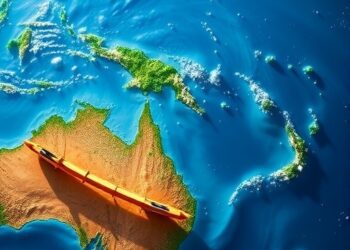|
Changes to the Earth’s climate, the severe decline in biodiversity, and the intense use of land, water and natural resources show the extent of humanity’s impact on the Earth’s biological, geological and atmospheric processes. Experts are already referring to the Anthropocene, the human epoch. Understanding the complex causes and processes of the Anthropocene and identifying and implementing effective actions are crucial for mitigating the negative effects of these developments. At the Leopoldina’s “Crossing Boundaries in Science” conference, which will take place from Monday 24 June to Wednesday 26 June in Jena/Germany, international scientists will participate in interdisciplinary discussions on causes, consequences and solutions in the Anthropocene. The event is also the opening conference of the new Max Planck Institute of Geoanthropology. Symposium Following the opening by Leopoldina President Professor (ETHZ) Dr Gerald Haug, the President of the Max Planck Society Professor Dr Patrick Cramer, Professor Dr Jürgen Renn, Founding Director of the Max Planck Institute of Geoanthropology, and Professor Dr Thomas Lengauer, Emeritus Scientific Member of the Max Planck Institute for Informatics in Saarbrücken/Germany, the event will focus on humanity’s impact on the Earth system, as well as the question as to how limited knowledge on this subject is. Key figures in the Anthropocene and their scope of action will be introduced and discussed over the next days of the conference. Experts from the natural and social sciences and the humanities will speak about economic, political and social control mechanisms as well as the responsibility of the individual. Speakers will include marine researcher Professor Dr Antje Boetius, biologist Professor Dr Katrin Böhning-Gaese, historian Professor Dr Dipesh Chakrabarty (virtual), system ecologist Professor Dr Johan Rockström, climatologist Professor Dr Jochem Marotzke, chemist and Vice-President of the Leopoldina Professor Dr Robert Schlögl and physicist Professor Dr Ricarda Winkelmann, Founding Director of the Max Planck Institute for Geoanthropology. As part of the symposium, cultural historian Andrea Wulf will speak about the natural scientist Alexander von Humboldt in a public lecture on Monday evening. The English-language lecture “The Invention of Nature – Alexander von Humboldt’s New World” will begin at 7.30 p.m. at the Volkshaus Jena (Carl-Zeiss-Platz 15). The conference is the third event in the “Crossing Boundaries in Science” (CBiS) series by the German National Academy of Sciences Leopoldina. The objective of the series is to discuss, at an early stage, the research areas which are particularly dependent on interdisciplinary cooperation. This event is open to all interested parties and will also be livestreamed. The conference will take place in English. The complete programme and all information about the livestream can be found at: Journalists who would like to attend should register by email at presse@leopoldina.org. The Leopoldina on X: www.twitter.com/leopoldina About the German National Academy of Sciences Leopoldina |
Scope for action in the Anthropocene: Leopoldina Conference “Crossing Boundaries in Science” in cooperation with the Max Planck Institute of Geoanthropology
ADVERTISEMENT




